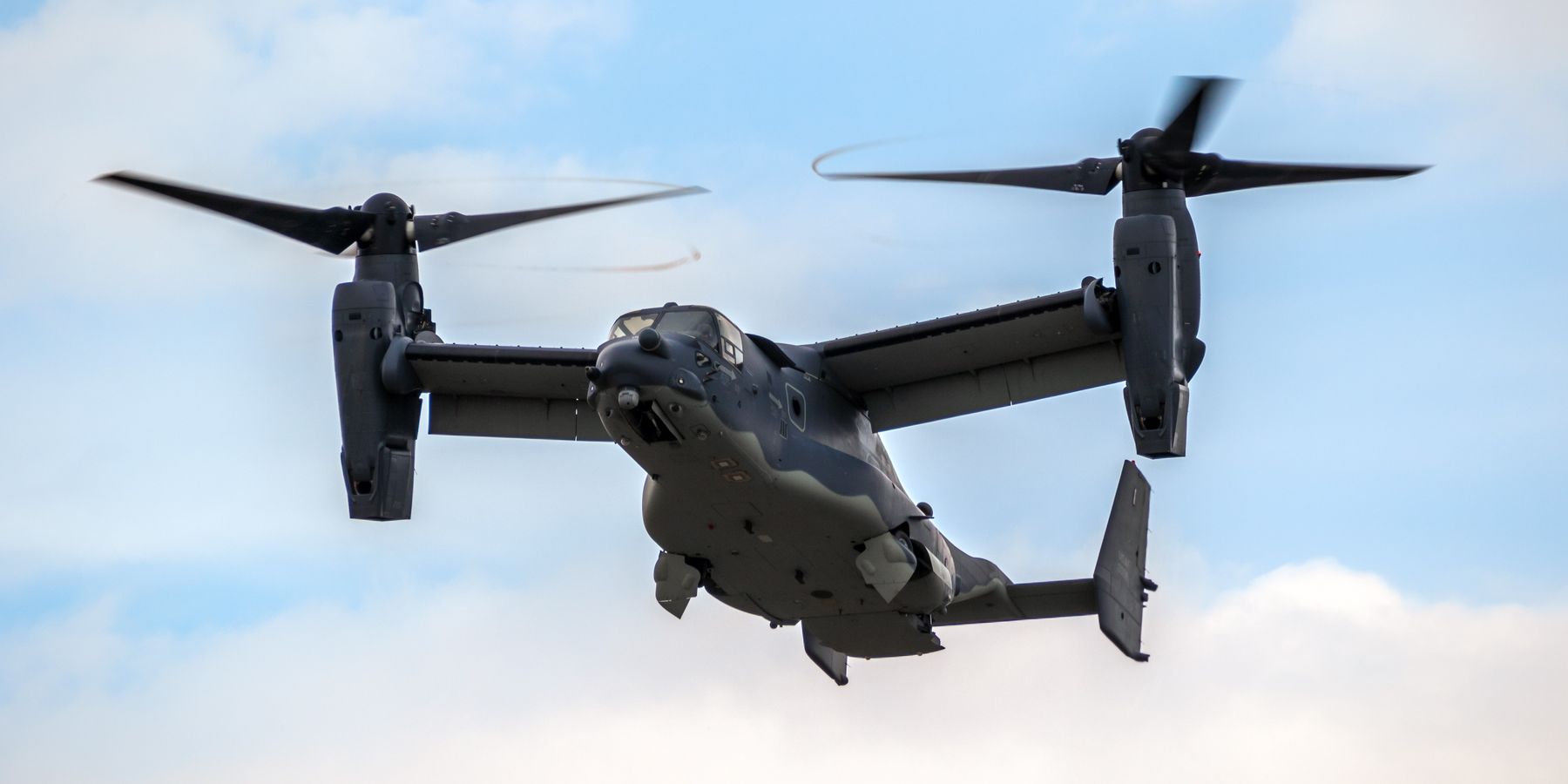Update, Dec. 7 at 8:48 a.m.: The Pentagon announced that it will ground its entire Osprey fleet after announcing that all eight airmen onboard the V-22 that crashed off the coast of Japan had died. Since last year, 19 service members have died in V-22 training crashes.
A V-22 Osprey crashed over the sea near Japan on Wednesday, killing at least one of the aircraft’s eight crew members and marking the fourth deadly accident involving the controversial aircraft since 2022.
The exact reasons for the crash, as well as the condition of the other soldiers onboard, remain unknown at this time. Some witnesses said one of the aircraft’s engines “appeared to be on fire as it approached an airport for an emergency landing, despite clear weather and light wind,” according to a Reuters report drawing on local Japanese news outlets.
The Osprey, known for its distinctive “tiltrotor” design that allows it to take off like a helicopter and fly like a plane, has earned a reputation in its two decades of service as one of the least reliable aircraft in the Pentagon’s stockpile, leading some to dub it the “widow maker.”
Osprey crashes have now left at least 12 soldiers dead in less than two years. These incidents have led some analysts to call for the V-22 to be retired.
While other aircraft have higher overall crash rates, the Osprey stands out for the circumstances in which accidents have occurred, according to Julia Gledhill of the Project on Government Oversight.
“[W]hat’s striking about the Osprey is that since the aircraft became operational in 2007, most of the fatalities involving the aircraft have happened during training exercises, not active operations,” Gledhill wrote in RS earlier this year.
Persistent issues with the Osprey’s engine and gearbox have led the Air Force, Marines, and Navy to each ground at least part of their fleet over the past year. It is not clear which service was operating the Osprey that crashed near Japan on Wednesday.
The V-22 is not the only military plane that has seen an increase in crashes in recent years, a fact that experts attribute to poor oversight and a steady drop in flight hours for pilots, many of whom spend much of their training time in simulations rather than in the air.
The Pentagon created a new Joint Safety Council last year in response to the uptick in crashes, but the panel has yet to publish any public reports or share the status of its work.
- Why they call the Osprey the 'widow maker' ›
- Military officials: 'widowmaker' Osprey will fly with a faulty clutch | Responsible Statecraft ›
















